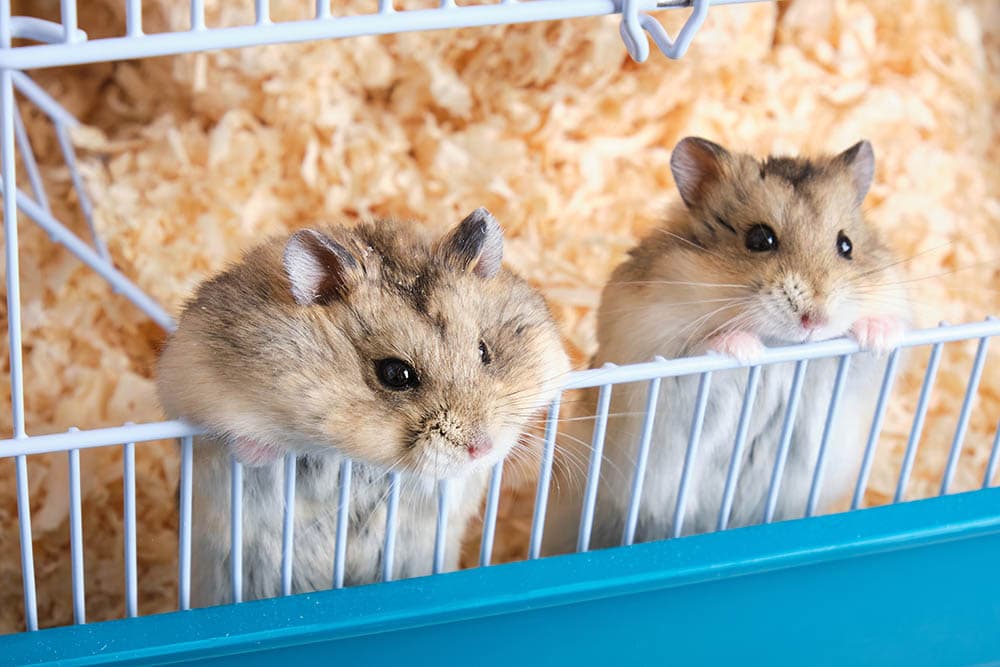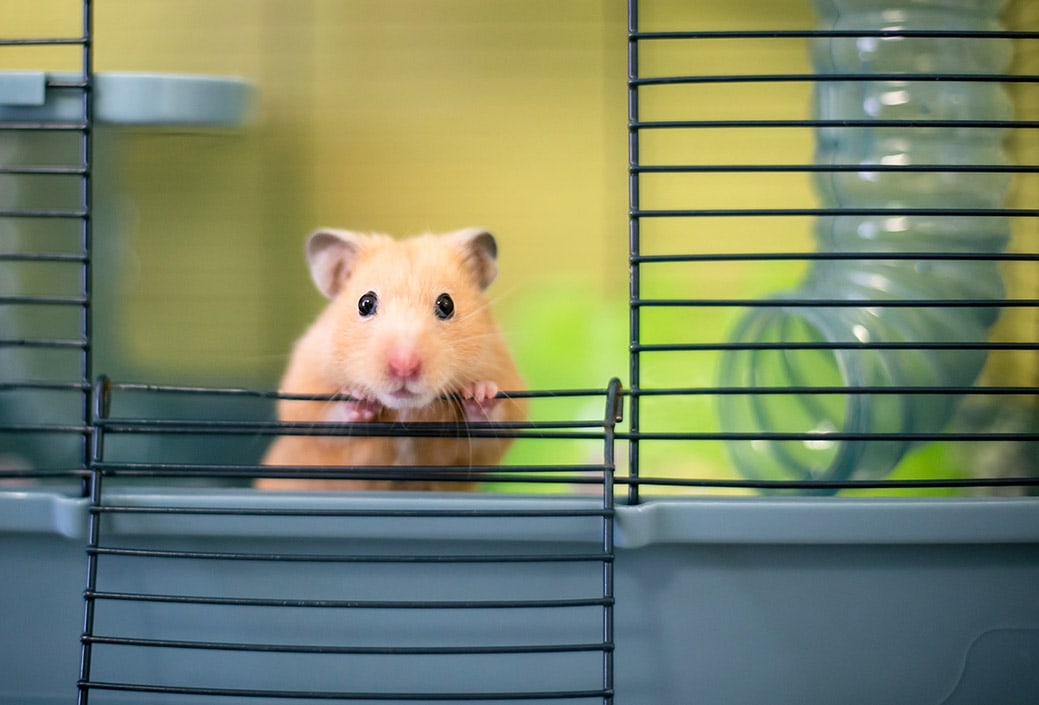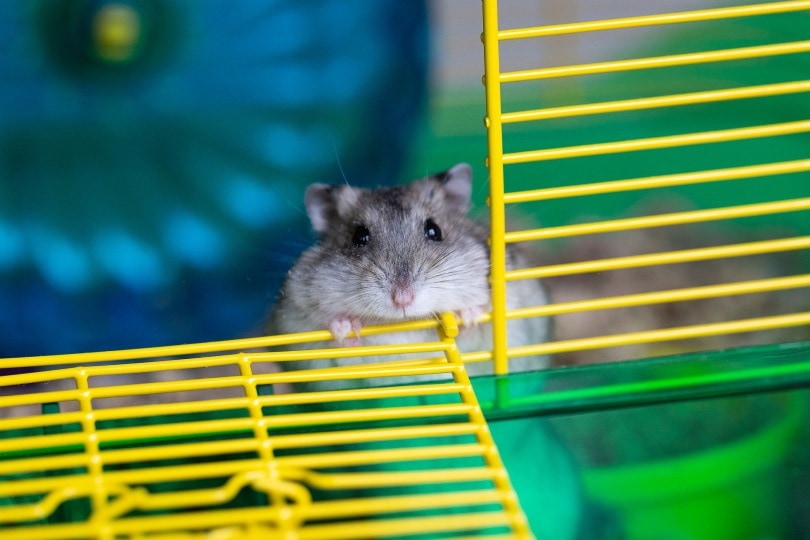
Hamsters are fun and adorable little pets that many people own as children. But unfortunately, these small rodents tend to have high-stress levels.
All kinds of things can stress out a hamster, and it’s an excellent idea to be aware of the most common ones. This way, you can avoid accidentally causing anxiety in your pocket-sized pet.
Here, we go over common stressors and signs of stress in hamsters, as well as methods that you can use to avoid causing your pet any undue anxiety.
Top 10 Things That Stress Hamsters Out
1. Loud noises
This can be applied to almost any animal, as most mammals don’t appreciate loud noises. As for your hamster, place their cage in a quiet area where they won’t be disturbed by excessive noise and action.
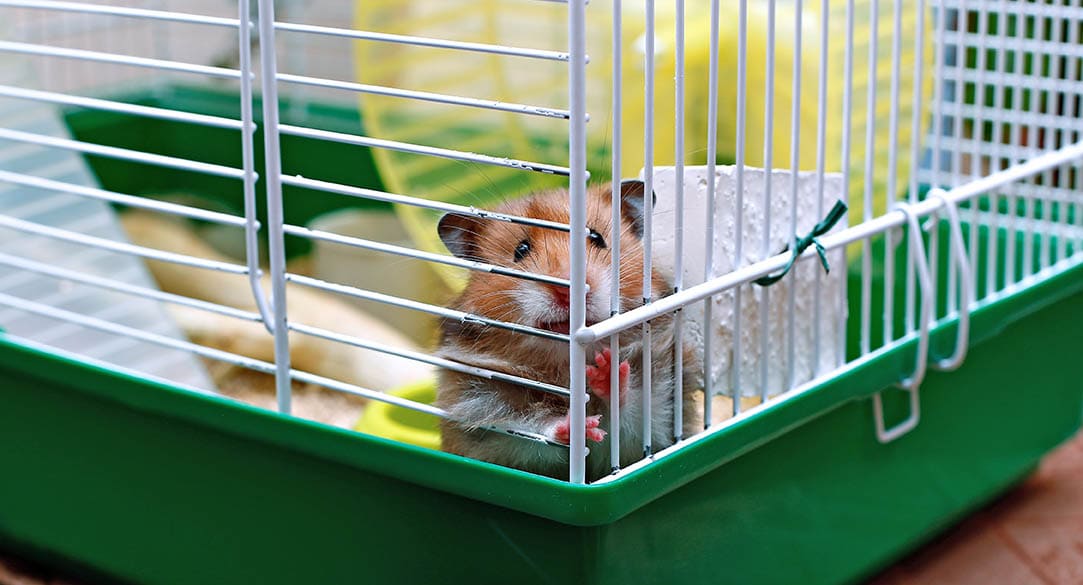
2. New environment
This can either be due to bringing a new hamster home or moving or relocating your hamster to another space. For most pets and even humans, change can be hard!
Something as simple as a new cage or moving things around in the cage can also stress out a hamster. So, when cleaning your hamster’s habitat, try to put everything back the way that you found it, and only move the cage or swap it for a new one if absolutely necessary.
3. Stressful environment
Loud noises can obviously lead to a stressful environment, but we’re also talking about cage size and hygiene. It’s essential that your hamster has a cage that’s the right size for them and that is cleaned regularly.
A cage that’s too small and not spot-cleaned daily and deep-cleaned weekly can definitely cause your hamster stress.
They need to explore, exercise and burrow, so ensuring your hamster’s space is large enough to accommodate these activities is vital.
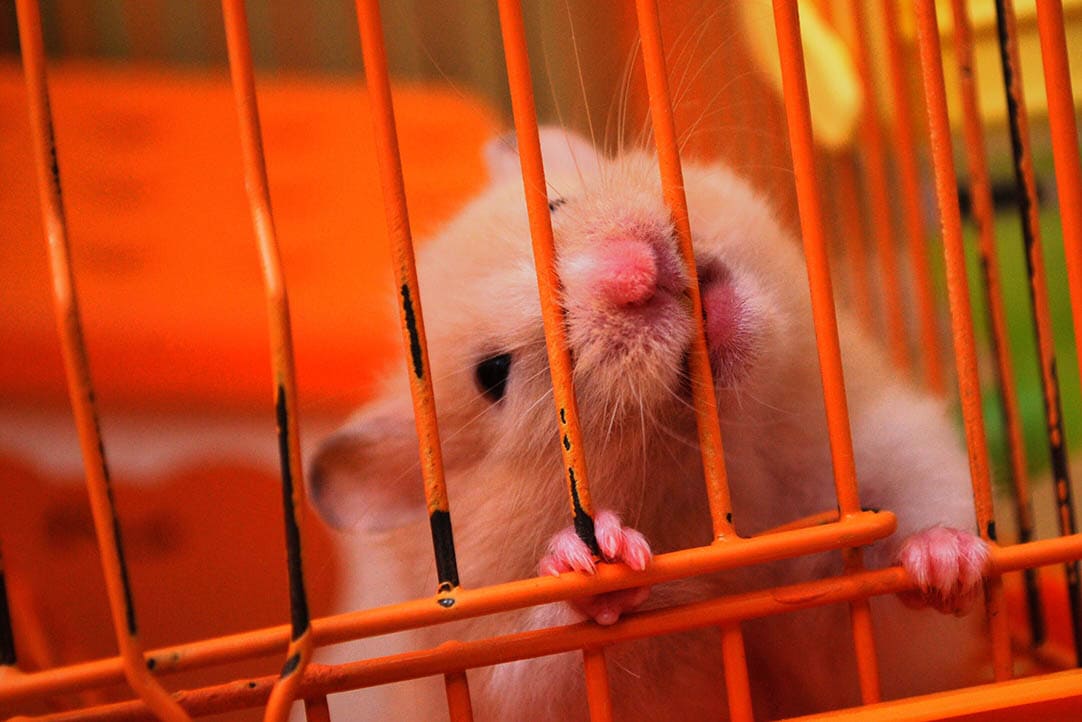
4. Rough handling
When handling a hamster, your movements should always be gentle and slow. Talk to them quietly and calmly.
If your hamster is a new pet, you’ll want to give them time to become accustomed to you, so offer your hand with your palm up and let your hamster smell you. This way, they become familiar with your scent.
Speaking of scent, avoid wearing any scented lotions or perfumes while handling your hamster.
5. Sudden movements
This can be sudden movements while holding them to just moving around the vicinity of their cage. This includes not allowing young children around your hamster unless they are calm and quiet.
If you have children in the house, teach them how to be quiet and slow in their voices and actions around the hamster.

6. Lack of mental stimulation
Your hamster can get stressed from being bored. You’ll need to ensure that you have enough toys to entertain your hamster, everything from chew toys to tunnels and hideaways. Giving hamsters places to hide will definitely do them good.
Just be sure to only add one new toy at a time, and remove one old one at that time. Too much change at once can cause stress.
7. Poor diet
Like all living things, hamsters need a good diet and constant access to clean water. Without the right food and clean water, hamsters will be seriously stressed.
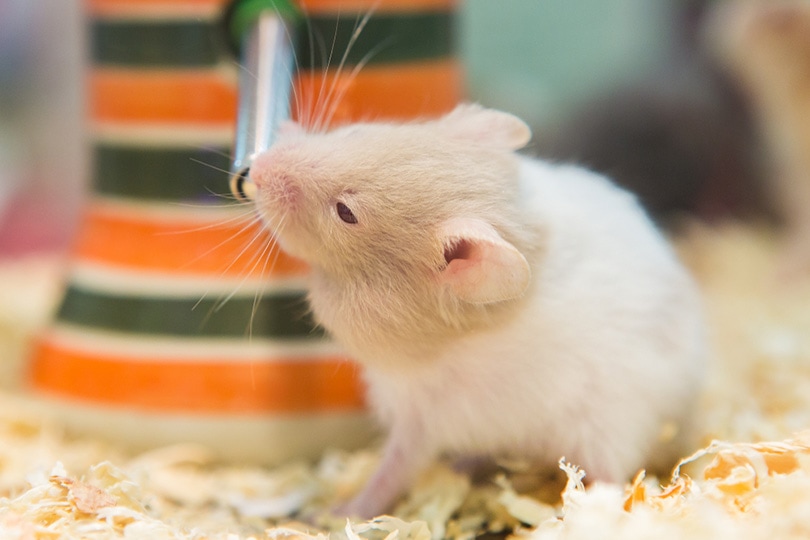
8. Lack of exercise
Hamsters have a natural instinct and need to run. Wild hamsters have been known to run up to 10 kilometers/5 miles every night in search of food and while escaping predators.
Without the opportunity to exercise like this every night, hamsters will be stressed and unhappy. Every hamster needs a properly sized hamster wheel.
9. Not letting them sleep
Hamsters are nocturnal, which means they sleep all day and are up all night. Anyone who has had a hamster in their bedroom certainly knows this!
What this means is that as much as you might be tempted to handle your hamster during the day, try not to do it.
You’d be grumpy too if some giant kept trying to pick you up while you were sleeping! Aim for handling your hamster only in the evenings.

10. Multiple hamsters
Hamsters are territorial, particularly with hamsters of the same sex. It’s best to keep your hamster by themselves — they won’t get lonely. If you keep several hamsters together, you can expect there to be occasional fights.
Signs of Stress in a Hamster
It’s critical to recognize the signs of stress in your pet. This way, you can either have them checked by your vet to ensure that it isn’t a health issue or to fix whatever is stressing them out.
Helping a Stressed Hamster
Speak to your vet! They can help rule out any potential health problems and provide advice if it’s not a health issue.
Double-check the cage: Is it the right size? Are you keeping it clean? Make sure your hamster has toys and a wheel, is eating the right food, and has access to water.
Keep the cage in a safe and quiet location. No pets or young children should have access to your hamster’s cage. Even if your dog loves to just stare at your hamster quietly, this will still add stress to your hamster’s life.
Don’t forget to handle them gently and calmly — make no sudden movements or loud noises. If your hamster seems agitated, try to fix the problem, and leave them alone until they seem okay.
Conclusion
Many of the things that stress out hamsters are also things that can stress out almost any other pet, even humans! But sudden stress in a hamster could lead to death if they are older or have a health condition.
Becoming familiar with the best ways to take care of your hamster is the best thing that you can do. Doing the research and learning the right and wrong ways of doing things will ensure that you’ll have a healthy and happy hamster.
Featured Image Credit: Cindy Parks, Pixabay



